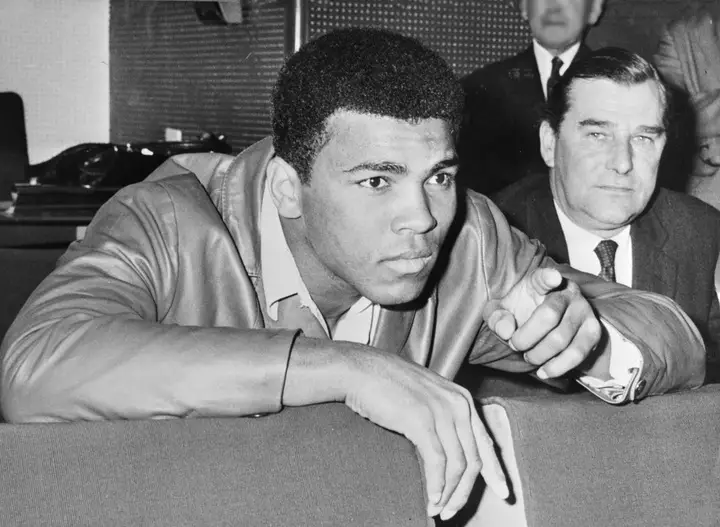As we commemorate the 50th anniversary of the legendary boxing match known as the “Rumble in the Jungle,” the excitement that surrounded this historic event is rekindled anew. The bout between Muhammad Ali and George Foreman on October 30, 1974, remains a focal point of nostalgia for boxing fans, both those who lived through it and the newer generations who have learned about it through various media. This iconic encounter, taking place in Kinshasa, Zaire, not only redefined the heavyweight division but also encapsulated the spirit of an era in boxing that was dominated by titanic figures.
With every recounting of the fight, the high stakes of that night are brought to life. George Foreman, an undefeated powerhouse—boasting a record of 40 wins, 37 by knockout—was seen as a formidable force, a veritable giant in the ring. The perception was that he was an almost insurmountable obstacle for Ali, who, at 32, was perceived as past his prime. The narrative surrounding the fight often features a stark contrast: Ali, the charismatic showman with a jaw that had proven vulnerable, versus Foreman, the bluprint of raw ferocity.
The anticipation leading up to the bout was rife with skepticism regarding Ali’s chances. No one could ignore the brute force that Foreman wielded, especially in light of the fact that Ali had been bested by former champions Joe Frazier and Ken Norton, both of whom had fallen victim to Foreman’s unrelenting onslaught. Analysts speculated that Ali was once again stepping into the ring as the underdog, with many concerned not only for the potential of a loss but even for his safety.
However, Angelo Dundee, Ali’s loyal trainer, had an unwavering confidence in his fighter’s abilities. Dundee was adamant that Ali had the strategy needed to reclaim his title. In a classic case of knowing one’s fighter better than the naysayers, Dundee believed that Ali could exploit Foreman’s aggression and strength. And indeed, Dundee’s instincts would prove prescient—though not in the way anyone had expected.
As the match unfolded, Ali’s approach was nothing short of tactical genius. For long stretches, he absorbed punishment while resting against the ropes, allowing Foreman to exhaust himself with sweeping punches aimed at an opponent he believed he could overpower with brute force. Many observers, including Dundee, were initially aghast at Ali’s strategy, fearing for his well-being. But what appeared as vulnerability masked a brilliant ploy, one that would unsettle Foreman.
The fight, which reached its climax in the eighth round, was a testament to Ali’s resilience and tactical acumen. The boxing world watched in awe as Ali capitalized on Foreman’s fatigue, switching from defense to offense with breathtaking efficiency. The knockout that sealed Ali’s victory transformed not only the fight’s immediate stakes but elevated Ali’s status to that of legend in the sport.
Despite the clarity of the events that took place, myths and ideas surrounding the fight have become entrenched in boxing culture. One popular story asserts that Ali loosened the ropes to enhance his defensive strategy—an assertion that Dundee himself has consistently refuted. He recalls the laborious process of tightening the ropes only to find them slackened by the oppressive heat hours before the fight. The reality is that both men were athletes competing in their own right, and the narrative woven around Ali’s strategy often overshadows the complexity of both fighters’ skill sets.
Furthermore, while Ali’s victory over Foreman certainly merits its place as a crowning achievement in his storied career, Dundee emphasized that the fight against Sonny Liston should hold a higher rank in terms of significance. Liston, considered a monstrous figure in his own right, presented a psychological challenge that Ali overcame in a manner that reshaped his identity as a champion.
As we reflect on the legacy of the Rumble in the Jungle, we’re reminded that this fight was more than just a clash of titans; it was a sociopolitical commentary, a reflection of resilience and tenacity in the face of overwhelming odds. The legends of Ali and Foreman continue to evoke passion and admiration, illuminating the sport of boxing with lessons of mastery, strategy, and the undying belief in oneself.
Further examining the intricate web of storytelling around this fight reveals fundamental truths about sportsmanship—namely, that greatness is often born not just from talent but from an intricate understanding of one’s own strengths and weaknesses. The Rumble in the Jungle remains a significant chapter in the annals of boxing, marking a moment when the impossible was achieved, forever embedding Ali’s name in the hearts of fans worldwide.

